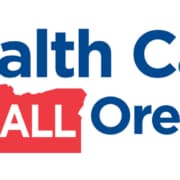Feeling Overwhelmed by the Media?
Read SARC Volunteer Coordinator, Morgan Evans, talk about how to care for ourselves in an age of endless media below!
Take a moment to really feel your feelings. Literally. Take a deep breath and ask yourself, “What is the media bringing up for me?” Does reading or participating in these cycles make you anxious? Do you feel overwhelmed, triggered, or angry? Is it empowering to contribute to these newsfeeds or comment strings? Exhausting?
All of these (and many more) are normal reactions to the increase in disclosures of sexual assault we are seeing in the media.
Whether we are survivors ourselves, support people for others, allies, generally ignorant to the topic of sexual violence, or activists for social change- incessant media coverage of sexual violence impacts our mental health and general wellbeing.
We can counter any effects of vicarious trauma by consciously acknowledging our thoughts and bodies and practicing something called self care.
Self care awards us the space and mental energy to react to stress in an intentional way. Self care is a process. It is hard to start doing, it is ongoing, and sometimes one method does not work and we have to try something else! Here are some ways you can start this practice today:
Feel free to take a break
It is easy to put pressure on ourselves and others to research, educate, or act immediately in response to the stories we are seeing lately. During this time, it is important to remember that we are entitled to take a break.
How does it feel to read that third news article, comment on that thread, or watch two hours of media coverage on the same topic? Is it beneficial to my mental health to participate in this hashtag at this time? Some days, the answer is no.
There should be no shame in taking a timeout, unfollowing that page on social media, or telling someone, “Actually, I am really not interested in talking about that right now. Can we talk about something else?” This can look like setting specific time limits on how long you want to spend on these topics. It could be disconnecting all together. And it can change day to day!
It is important to be intentional and do what feels right for us at the time. By doing so, we allow ourselves the space to return to what we care about in an intentional way.
Pay attention to our bodies
It is really easy to ignore the things our bodies are telling us or asking from us. Our physical and mental health are fully intertwined. Taking a moment to pay attention to how they interact can have major positive effects on our mood. Some things (like exercise, drinking more water, and consciously breathing) can help to physically flush stress hormones from our bodies quicker.
Self care does not have to be elaborate or expensive. It can be as simple as taking two minutes to consciously breathe. Get up and take a five-minute walk. Eat or drink something you really enjoy, slowly. Spend time physically close to a person or animal you care about. By doing activities that center around physicality and our senses, we can help to ground ourselves back in our body, which can help reset our thoughts.
Find your good
What fills you up? What brings you joy? During times of high stress or immediacy these are some of the first things we tend to neglect. It is especially important to designate mental energy and time to the things that bring happiness and meaning to our lives.
This could be music, art, community, sport, or nature. This could mean creating room on your phone or computer to store pictures you’ve taken during good times or screenshots from conversations with people you care about. Sometimes it is staying in bed all day and binge watching a show you really enjoy. Sometimes it is completely disconnecting from technology and spending time alone outside. You can pay gratitude to the good things that already exist in your life, or set reasonable goals for you to give back to yourself in a meaningful way. Give yourself space to play, joke, laugh, enjoy the things around you. We cannot get rid of the ugly or bad that exists in the world without acknowledging what is good.
No matter your personal, political, or professional connection to the topic of sexual violence, it is important to recognize the very real impact there is from hearing and talking about this subject so often. It is important to be kind and compassionate to ourselves and how we react to this news. We cannot feel guilty for prioritizing our own health and wellbeing.
I leave you with these words from Black Lives Matter cofounder Alicia Garza on staying centered in the face of adversity–
“My emotional and mental well being depends on my commitment to what I care for most. It depends on being resilient, which is not the same as being perfect. It depends on being durable, which is not the same as infallible. And when I move towards the things I care most about, I am the most free I have ever been. Wounds, cuts, scars and all.”
To get in touch with SARC’s services, seek support, or ask questions, contact SARC’s 24-hour Support Line: 503-640-5311.

